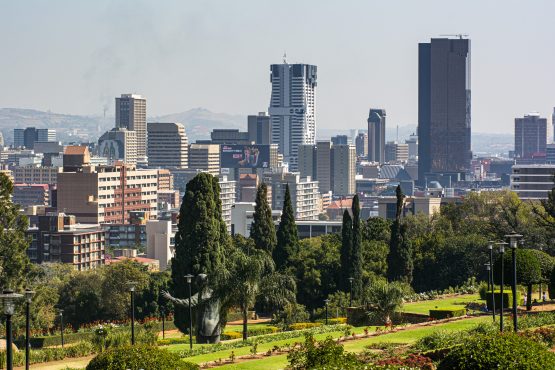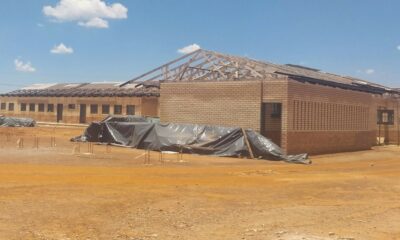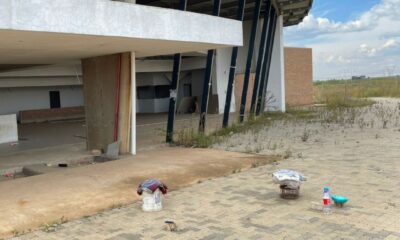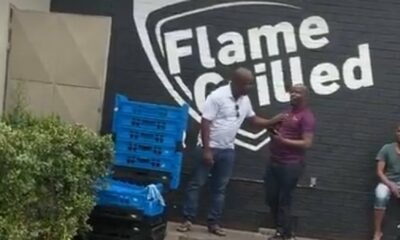News
AfriForum Fights Back Against Tshwane’s “Double Tax” Cleaning Levy

Residents accuse the metro of sidestepping service delivery failures with a controversial new charge.
When Tshwane quietly pushed through a new R200 monthly city cleaning levy at last week’s council meeting, many residents barely had time to grasp what it meant. But civil rights organisation AfriForum had already been watching closely—and now, they’re taking the battle to court.
The group has announced plans to file an urgent application at the Gauteng High Court in Pretoria to stop the metro from implementing the levy on July 1. At the heart of their legal argument is a claim that this charge amounts to an unfair “double tax” on residents and businesses that don’t even use the city’s waste collection service.
A new levy, an old frustration
AfriForum had been in talks with the metro since March, when the idea of the levy was first floated. Their warning was clear: this would be a controversial, unpopular move in a city where service delivery has long been patchy and trust in local governance is already thin.
Deidre Steffens, AfriForum’s local government affairs advisor, said the group tried to resolve the matter diplomatically. “We made it clear that this levy is not service-related in any meaningful way. It’s an additional tax – plain and simple,” she explained. “You’re asking people who already pay for private refuse services—and full property tax—to now pay again for something they don’t use.”
The metro failed to respond by AfriForum’s deadline last Friday. That silence, according to Steffens, forced their hand. “The city had every chance to reconsider. Now we’ll see them in court.”
The mall factor and landfill debate
According to the city, however, the story isn’t quite so simple. Member of the Mayoral Committee for Environment and Agriculture Management, Obakeng Ramabodu, defended the levy, especially targeting commercial areas like Menlyn Mall and Wonderpark Estate.
“These businesses use private collection services, yes, but they still dump waste at our landfills,” he said. “We maintain those landfills at a cost. This levy is about fairness.”
It’s an argument that’s unlikely to satisfy critics who say the city is penalising residents for its own inefficiencies. AfriForum’s Arno Roodt, District Coordinator for Greater Pretoria South, didn’t mince words: “Instead of fixing broken systems or balancing their own books, they’re shifting the burden to the public. And the ones being punished are the ones who’ve opted out of the chaos by going private.”
Is this really about cleanliness—or cash?
The language from the city paints the levy as a “cleansing fee”—implying a direct link to urban cleanliness and shared civic responsibility. But residents online are calling it what it feels like: a sneaky new tax.
On Pretoria community Facebook groups and Twitter/X threads, the reaction has been swift and sour. “Another way to squeeze us,” one user posted. “I pay for my own bins already—now I must fund the city’s failure too?”
Others questioned the logic of paying for a cleaning service that many say they’ve never actually seen. “If you want me to pay R200, come sweep my street first,” another wrote.
A wider battle over municipal transparency
This legal challenge taps into a broader frustration brewing in metros across the country: communities are feeling increasingly overtaxed and underserved. It’s a pattern that fuels resentment and growing grassroots resistance.
AfriForum’s latest court bid may be a test case for other municipalities eyeing creative new revenue streams. If they win, it could send a powerful message about accountability and remind local governments that service delivery must come before collection.
For now, the court date looms and residents are watching closely. If AfriForum is granted an urgent interdict, the R200 levy could be put on ice, at least temporarily. But if the metro prevails, many homeowners and small businesses may soon see yet another mysterious line item on their monthly bills.
And in a city already grappling with crumbling infrastructure and service delays, that may be one charge too many.
{Source: IOL}
Follow Joburg ETC on Facebook, Twitter , TikTok and Instagram
For more News in Johannesburg, visit joburgetc.com



























